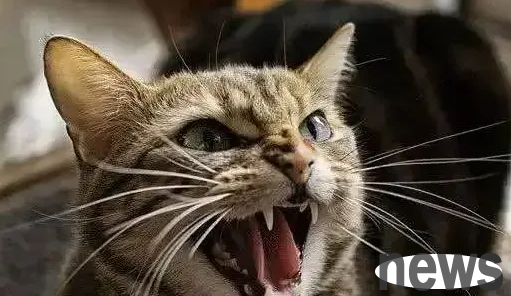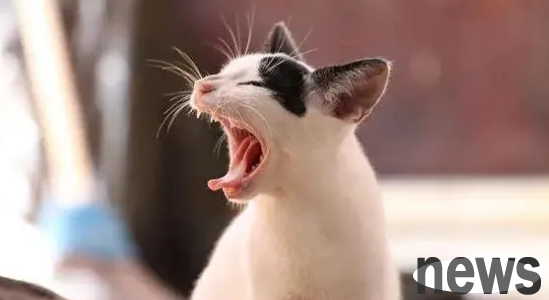Cats are very sensitive animals, and stress is a natural reaction when they face stimuli such as strange environments, sounds, and smells. Generally, cats are stressed and will have a series of reactions such as hair frying, pupils getting bigger, shortness of breath, rapid heartbeat, drooling, and running away. Excessive stress can negatively affect their physical and mental health. Today I will reveal the secret to you - 5 behaviors that can easily cause cats to be stressed, and you must not do it!

New Environment Stress
When cats enter a new environment, such as a new home or a veterinary clinic, they may feel nervous and uneasy. In this case, cats may experience stress reactions such as loss of appetite, hiding, and excessive hair licking. To help cats adapt to the new environment, we should provide them with a quiet and comfortable corner so that they can have enough time to familiarize themselves with the new environment. In addition, some items familiar to cats, such as toys, cat nests, etc. can be placed in the new environment to relieve their stress response.
Stress when going out
Cats stay at home for a long time. If they rarely see strange cats, they are very likely to have stress reactions when going out. For example, when walking a cat, when facing strangers and unfamiliar environments, the cat will become very exciting, with airplane ears attached to the ground, and its hair will explode, making its whole mental state become very nervous. So don’t force the cat out forcibly, so that the cat can adapt slowly.
Bathing Stress
Many cats are afraid of taking a bath because the process of taking a bath may make the cat feel threatened. In order to relieve the stress response of cats during bathing, we should let the cat adapt to the environment of the bathtub or hand sink before taking a bath, and you can put some toys or food that the cat likes. In addition, during the bathing process, you should comfort the cats with a gentle tone and movement to make them feel safe.

Scared stress
Cats are very sensitive to sudden noises, dynamics, or other scaring factors. When cats are frightened, they may experience stress reactions such as escaping, hiding, and excessive hair licking. To avoid this, we should try to avoid letting cats touch factors that may cause them to frighten, such as avoiding loud noises near cats, and not suddenly moving the object where the cat is located. In addition, after cats are frightened, they should be given a quiet and comfortable space to calm their emotions.
Stranger/Animal Stress
Cats may feel nervous and upset when they encounter strangers or animals. In this case, the cat may have stress reactions such as alert, attack, and escape. To alleviate cats’ stress response, we should try to avoid having cats in contact with strangers or animals unless they are in a relatively safe environment. In addition, during contact, the cat should be treated with a gentle tone and movement to avoid making them feel threatened.
Cats have severe stress response. As a shoveler, you should understand the causes of cat stress. We should understand the factors that may cause cats to feel stressed and take corresponding measures to alleviate their stress response. By paying attention to the needs and feelings of the cat, try to avoid stressful behaviors and allow the cat to grow up healthily.
